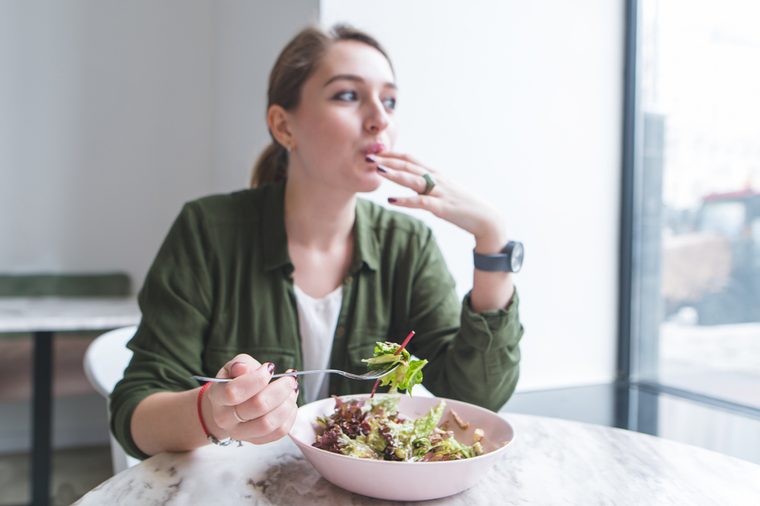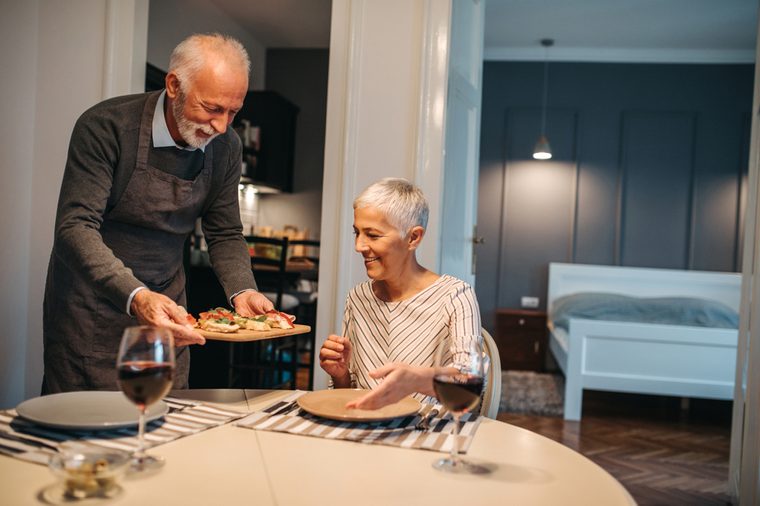
Assess yourself
The number one rule of dieting: No one size fits all. “I tell people to stay in their own lane. We’re trying to compare ourselves to others, but when you find out what works for you, you cruise along,” says Susan Albers, PhD, author of 50 More Ways to Soothe Yourself Without Food. Don’t automatically assume that what worked for your sister, coworker, or friend is going to work for you. Go for the plan that meshes best with your personality, likes and dislikes, and lifestyle. See if you recognize yourself in one of these common dieting personality types:

You live in the past
If you’re the type of person who spends a lot of time remembering the past, it could set you up for diet failure. You might go into every new attempt thinking: “Here we are again. I’ve tried this dieting thing before and it didn’t work or I wouldn’t still be here.” But let’s reframe that, and put your nostalgic personality to work for you. “Think back to a time when you were successful with healthy eating. There are helpful gems to be found in those experiences,” says Albers. For instance, if you know eating a protein-rich breakfast controls your hunger until lunch, but you’ve let that habit slide because of a busy schedule, strategize how to bring healthy breakfasts back into your life. Maybe it’s by batch-cooking a whole bunch of whole-wheat breakfast burritos and stashing them in the freezer. Make-ahead meals that you whip up on the weekends can help you stay the course. Or, if you’re strapped for time, consider ordering food from a meal plan service, that you can always have on hand. These are our favourite Canadian meal delivery services.

You tend to over-think things
This personality diet type—someone who is over-analytical—tends to sets unrealistic expectations. And this describes most female dieters, according to CSIRO, an Australian research organization. For this personality type, a proven plan like Weight Watchers, which was ranked as the top diet for weight loss, according to US News & World Reports, will give you lots of nutrition counselling, including helpful strategies for overcoming challenges. These food myths may be the reason you’re still gaining weight.

You’re a rule follower
Do you like knowing exactly what to eat and when? “If your brain works better with a structured, formal plan, having a daily guide to know what to eat and when is helpful and can do wonders for people. This is called ‘set it and forget it’ mode,” notes Vicki Shanta Retelny, RDN, author of Total Body Diet for Dummies. Many highly rated commercial diets like Jenny Craig or the Flat Belly Diet offer this kind of structured eating. Considering the Whole30 Diet? Here’s exactly what you can – and can’t – eat on the Whole30 Diet.

You’re a social butterfly
Prepackaged diet plans are generally not flexible enough for extroverted personality types. If being able to share meals with family and friends is important to you, you’d be better off learning diet tips that will give you the know-how to make healthier choices, especially when eating out. Yes, you can still eat out! “Choose your social outings wisely and say no to some things,” advises Retelny. You may have to scale back the socializing to two nights a week instead of four and eat light on the nights when you’re at home. Or you could learn to fill your plate with more vegetables and salads—and savor the company more than the food. Or commit to always bringing half the plate home. The Volumetrics Diet, which emphasizes low-calorie swaps that add volume to your meals and fill you up, could arm you with the knowledge you need to make your own healthy choices. Here’s more advice on how to stop overeating.

You’re a rule breaker
If you are someone who doesn’t like being told what to eat and when, mindful eating may hold a lot of appeal to you, says Albers, a mindful-eating expert. Mindful eating—while not a “diet”—asks you to tune into your body and hunger, slow down as you eat, and savor every single bite. (These mindfulness apps can help you get started.) The great thing about the mindful eating approach is, there are no “off limits” foods, including sugar, and no shame around eating it. “This approach is very freeing for [some] people,” says Albers. You might have success with these unusual ways to lose weight (without even trying).

You’re emotional
Overeating isn’t always a product of our emotions. Though many people ascribe episodes of overeating to sadness, research in the journal Appetite shows that this way of thinking may predispose us to the behavior. When you’re feeling emotional and ready to take solace in food, it helps to hit pause before reaching for that snack. Check in with your hunger and know your reasons for eating, says Albers. Emotional eaters don’t do well with super strict diets that cut out whole food groups or favorite foods. That can just increase cravings, according to the Mayo Clinic. Emotional eaters may want to consider something like the Mediterranean diet, which isn’t so much a diet as a lifestyle—a way of eating that offers you nutritious fare without deprivation. Try our 7-day Mediterranean meal plan.

You’re impulsive
If you reach for chocolate or ice cream without a second thought, you have the type of personality that benefits from keeping trigger foods out of the house (or desk, when you’re at work), advises Retelny. This doesn’t mean you can never indulge. The key is to purposefully work in indulgences into your day. For instance, if you’re in the mood for ice cream, plan to have an ice cream bar after dinner, she says. The fact that it’s portion controlled can help you feel, well, in control of your cravings. In this instance, an 80/20 approach works well. That’s eating healthfully roughly 80 percent of the time and enjoying fun foods the other 20 percent of the time. 80/20 eating can help impulsive people feel sane—and not guilty—around food. The 80/20 rule is just one of 15 diet secrets thin women know.

Takeaways
No matter the type of eating plan you choose, sure you’re not looking for a quick fix. “The desire to choose healthy, whole foods has to be a daily agenda, whether it’s super structured or not, you have to be ready to commit to a healthy lifestyle,” says Retelny. “It’s a continual, day-to-day journey of conscious eating choices.” Every food decision is just one decision to make in a day filled with food decisions. The trick is to know yourself, and choose a plan that works for you. Next, learn about the best probiotics for weight loss.
